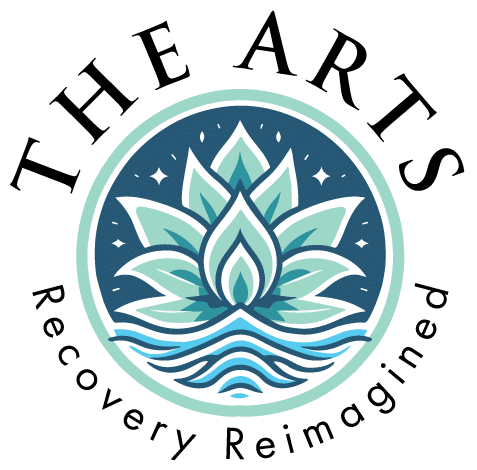After being sober for months, some people end up struggling with addiction again, feeling guilty and frustrated. Returning to drug-using behavior can seem like a setback, but it’s essential to realize that relapsing can be a normal part of the journey to recovery for many. Recognizing that relapse doesn’t mean defeat is critical, just like knowing what to do after a relapse.
In this article, we’ll review what to do after a relapse so you can get yourself back on track quickly and safely.
Step 1: Acknowledge the Relapse
When facing a relapse, the first crucial step is admitting it has happened. It’s essential to confront the reality of the situation without letting shame or guilt take control. Feeling disappointed or frustrated is normal. Allowing these emotions to overpower you can impede your recovery journey. Embracing the relapse as part of your path can empower you to move forward with a renewed dedication to your healing.
Acknowledgement forms the basis for the recovery process. By recognizing a relapse, you are owning up to your actions without being consumed by them. This change in mindset enables you to concentrate on what steps you can take to avoid getting trapped in self-blame. Keep in mind that setbacks like relapses are common during recovery, and many individuals have encountered challenges but continued their progress toward sobriety.
Step 2: Seek Immediate Support
Seeking assistance is vital when experiencing a relapse, as it can make you feel less alone and better able to cope with the situation. Reaching out to your support system for practical help is critical. Being surrounded by understanding and supportive people can significantly impact how you navigate through these moments.
Reaching out for support marks a step toward reclaiming your path to recovery. It reminds us that facing challenges is a part of the journey, and there are always sources of assistance within reach. Whether seeking guidance from a sponsor, connecting with a support network, or reaching out to a helpline, taking this initiative ensures that you are not navigating through difficult times alone and establishes the groundwork for progress.
Step 3: Analyze the Triggers and Situations
When a setback occurs, it’s essential to step back and reflect on what caused it. Recognizing the triggers and circumstances contributing to the setback is an important part of the recovery journey. Understanding these factors can prevent setbacks and enable you to develop effective strategies to manage them.
By dedicating time to analyzing the triggers and situations that affect you, you arm yourself with insights that can bolster your journey to recovery. Understanding the reasons behind a relapse is an essential tool for preventing setbacks and cultivating resilience. It marks a stride towards regaining command over your life and persisting toward sobriety.
Step 4: Reestablish Routines
Creating a daily schedule is a strategy to regain control following a setback. Structure plays a role in the healing process, offering stability and direction. By organizing your days and knowing what to expect, you can minimize the potential for chaos or uncertainty that might lead to substance use. A planned routine can help you concentrate on your objectives and reduce the risk of relapse.
Rebuilding a routine following a setback might feel overwhelming. Taking manageable steps can yield significant results. Start by focusing on tasks and gradually increasing the workload from there. Remember, the aim is not to burden yourself but to establish a well-rounded and sustainable daily schedule that supports your journey toward sobriety and overall wellness.
Step 5: Create a Relapse Prevention Plan
Developing a relapse prevention strategy is crucial for maintaining long-term sobriety. This plan acts as a guide to help individuals navigate challenging times and stay on track. It involves recognizing triggers, creating methods to handle them, and having support systems in place. By being proactive and prepared for challenges, individuals can lower the chances of relapse and strengthen their resilience by knowing what to do after a relapse.
Preparation and planning play key roles in a relapse prevention approach. When you know your emotional, environmental, or situational triggers, you can develop strategies to avoid or manage them effectively. This preparation boosts your self-assurance and equips you with the tools to deal with challenging situations without substance use. Having a plan in place can offer a sense of security and empowerment, making it easier to navigate the highs and lows of recovery.
The ARTS IOP Can Help You After a Relapse
The ARTS Intensive Outpatient Program (IOP) is a comprehensive drug rehab that aims to help individuals on their journey to recovery. Offering a range of substance abuse treatment services tailored to each person’s needs, ARTS IOP ensures that participants get the support they need while managing their obligations.
An essential feature of ARTS IOP is its accommodating schedule. Understanding that participants have work, family, and other commitments, ARTS IOP offers evening and weekend sessions for added convenience. This flexibility enables individuals to receive support without disrupting their lives.
Moreover, as it is an outpatient rehab program, individuals can stay at their homes while receiving care, allowing them to maintain their routines and support networks. The program focuses heavily on preventing relapse and teaching recovery skills. Participants are provided with the tools and strategies to handle triggers and avoid relapses. Combining evidence-based methods with approaches, ARTS IOP empowers individuals to establish a foundation for long-term sobriety.
A relapse doesn’t mean you’ve failed; it’s one step in the process that many people in recovery go through. With the help and resources, you can still achieve recovery. Knowing what to do after relapse and contacting programs such as ARTS IOP can help you continue on your road to recovery. Reach out to our team now to learn more about our programs.

